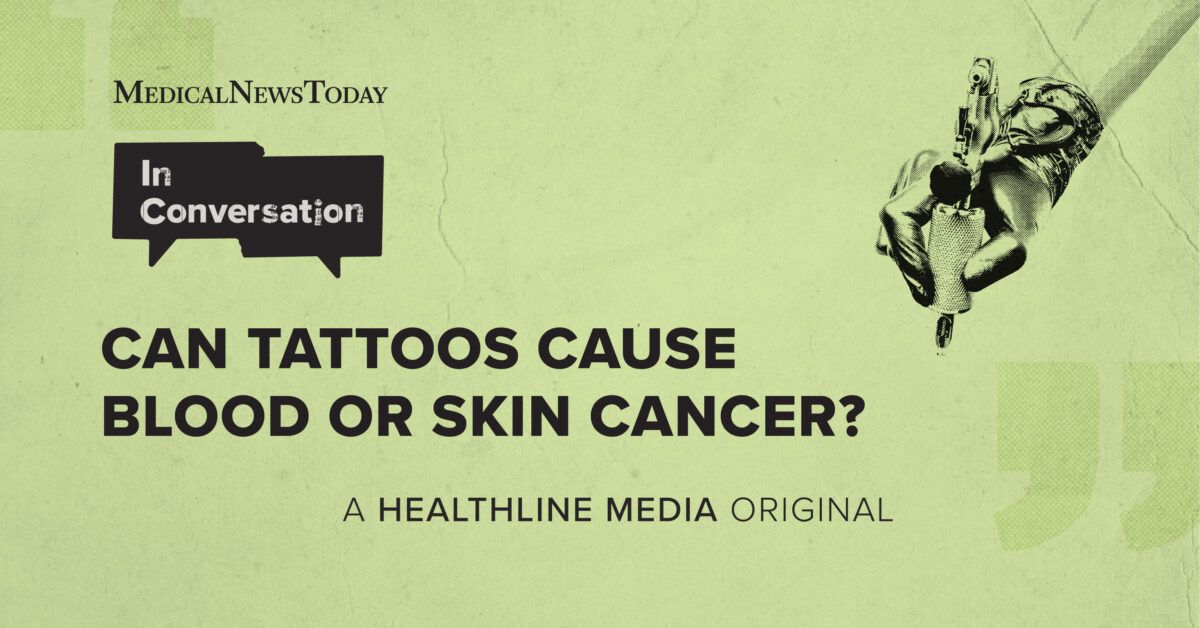What are the real health implications? …C0NTINUE READING HERE >>>
Some research has found a link between tattoos and an increased risk of cancer, and recent evidence appears to suggest that tattoos could heighten the risk of blood cancer, in particular. What biological mechanisms might explain this link, and should people really worry about the health implications of getting a tattoo? This podcast episode takes a deep dive into the latest evidence.
Share on PinterestDo tattoos really cause blood cancer? This podcast episode assesses what the latest research has to say on the topic. Illustration by Andrew Nguyen for Medical News Today.
Tattoos can be strikingly beautiful forms of art, and they are increasingly popular. According to a Pew Research Center survey conducted in 2023, 32% of Americans have at least one tattoo, and 22% have several.
Beyond adorning the body on a permanent basis, tattoos can also provide a meaningful way of commemorating important life events, or they can be symbols of mental and emotional healing.
However, some questions remain around the potential health implications of getting a tattoo, and recently, researchers have been homing in on the ways in which tattooing could affect a person’s physical health in the long run.
One study, published in Applied and Environmental Microbiology at the start of July 2024, tested samples of 75 tattoo and permanent makeup inks commonly used in the United States, and found that 26 of these were contaminated with infection-causing bacteria.
These included Staphylococcus epidermidis, an infection that can cause severe health complications, and Cutibacterium acnes, which causes acne.
More worryingly, a study from Lund University, in Sweden, which appeared in the journal eClinical Medicine the previous month, found that any-size tattoo was linked to a 21% higher link of lymphoma, a type of blood cancer.
To identify this link, the Lund researchers looked at data from the Swedish National Cancer Register, focusing on people who were 20–60 years old, when they received a lymphoma diagnosis, between 2007 and 2017.
But what does this link mean? How come tattoos may increase the risk of blood cancer? Are some types of tattoos riskier than others, and if so why?
Finally, how worried should people be about getting cancer if they have tattoos, and what should they keep in mind when considering whether or not to get a tattoo?
To explore these and other questions, Medical News Today editors and co-hosts Maria Cohut and Yasemin Nikola Sakay invited Milena Foerster, PhD, a researcher who specializes in the link between tattoos and cancer, on this latest In Conversation podcast episode.
Foerster conducts her research at the International Agency for Research on Cancer (IARC) of the World Health Organization (WHO), in Lyon, France.
In this episode, we also heard from another MNT editor, Andrea Rice, who shared the story of her journey with tattoos, and the questions she had concerning associated health risks, and the potential limitations of studies looking at this association.
Listen to our podcast episode in full below or on your preferred streaming platform.
>
